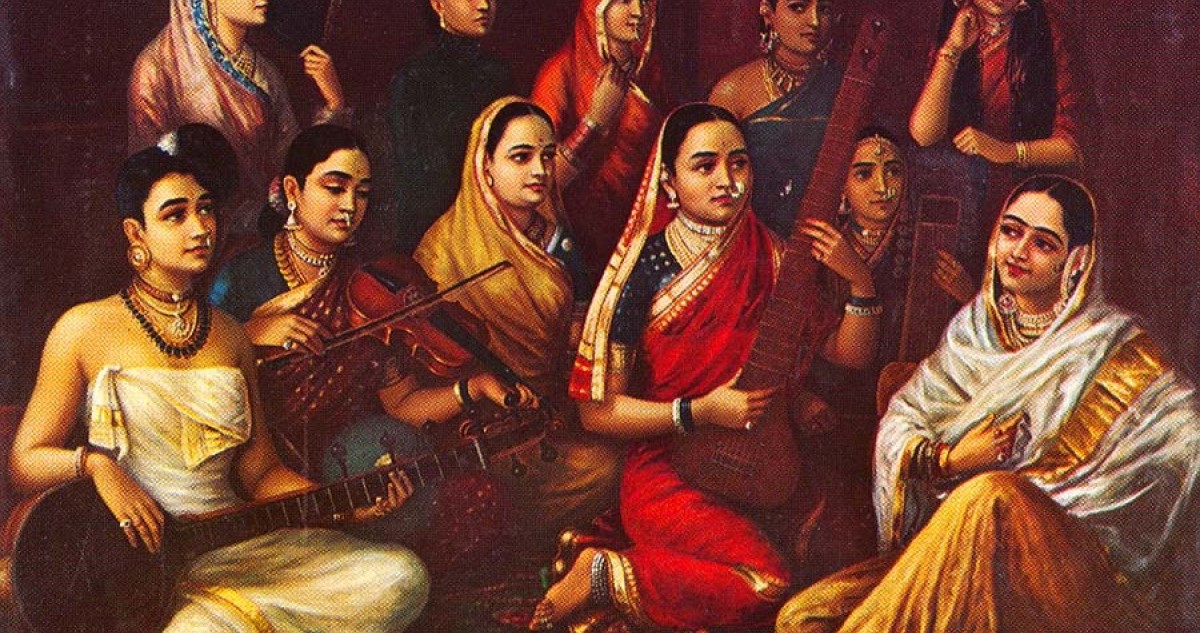DESIBUZZCanada
Events Listings
Dummy Post

International Day Of Yoga To Be Virtually Celebrated Saturday At 4pm

CANCELLED: Coronavirus Fears Kills Surrey’s Vaisakhi Day Parade

ADVERTISE WITH US: DESIBUZZCanada Is The Most Read South Asian Publication Online

SURREY LIBRARIES: Get Technology Help At Surrey Libraries

WALLY OPPAL: Surrey Police Transition Update On Feb. 26

GONE ARE THE DAYS - Feature Documentary Trailer

Technology Help At Surrey Libraries

Birding Walks

Plea Poetry/short Story : Youth Contest

International Folk Dancing Drop-in Sessions
WOMEN’S ROLES: The Importance Of Indian Women In The Vedic Age
- March 5, 2022

By Madhu Varshney
Trustee, Arya Samaj Educational and Cultural Society of BC, Vancouver
From the very beginning, Indian civilization has given much more importance to women. Women occupied a very important place in society during the Vedic period. A woman was the master of the house, eternal companion to her husband, respected as daughter, wife and mother. The glory of the Vedic era is evidenced by when women like Gargi Maitreyi, and others, flourished to prove that the Aryan women enjoyed equal rights with men to education, wealth and even to public debates and discussions. Women had an equal share in performing religious rites and sacrifices. According to the Aryan, a man cannot perform a religious action without a wife. No auspicious act was complete without her participation. Her advice was a must in each and every walk of life.
After going through the Vedas thoroughly, we can find there were a considerable number of female Rishis. The Rishis, including certain women Rishis, are remembered for their scholastic contribution and talent in the field of composition of Vedic hymns. Their contribution towards the Vedic literature is wonderful, precious and unforgettable.
The divine seers and sages sang praises of women’s virtue and upright conduct. Manu, the great sage, and law-giver writes:
“yatra naaryastu poojyante ramante tatra devataah”
“Gods bestow their grace on those who hold women in high esteem and those who treat them otherwise, fall from their grace and all their religious endeavors become fruitless.”
In India, a woman is an object to be worshipped, honored and respected. She has already been accepted as the better half of her husband.
A woman is not an instrument of sensual pleasure. She is the object of love and respect. Among Hindus, women are representative of “Shakti”. We are unable to do any work in the absence of “Shakti” we can perform them. She cooperates in Dharma and Karma, so another name of hers is “Sahadharmini”. She takes our Sattva in her womb, so her name is also “Jaya”. Therefore, it is said that in Dharma, Artha, Kama and Moksa – all the stages – the woman is the chief partner. She and only she is responsible for showing the path of heaven and hell.
Hindus see God as female. We call our land “Bharat Mata”. We quite justifiably proclaim:
“Jananee Janmphoomishcha swargaadapi gareeyasee”.
“Mother and motherland are even greater than heaven. Only on account of such chaste women, it rains, Dharma flourishes and the country prospers.”
The great Shankaracharya has remembered even Lord Krishna in the form of mother. Why? Because mother is the greatest lover and protector of children in the world.
Vivekananda believed that not only domestic welfare but also national development depended largely on the condition of a nation’s women. In his own words, “The best thermometer to the progress of a nation is its treatment of women.”
The position of women in a society can be judged by the way in which the birth of a girl is received. Unlike today, in the Vedic period the birth of a girl was not considered or regarded negatively. It was a matter of pleasure and delight if a girl took birth in a family. Like the sons, the girls received education in Gurukula Ashramas. They were taught lalit kala, music, dance, poetics, etc. They were brought up and educated like the male issues. Women did not lack in courage and valor. They proved no less warriors than their male counterparts.
The Indian marriage is not a contractual agreement. It is a sacrament, a spiritual bondage of eternal nature. Indian couples, as a matter of principle, lose their separate individuality and become one, of which the Ardhanarishvara form of Uma Maheshwara is the prime example. They become one not only for one life but lives after lives. Due to the nondualistic thinking, Indian marriage cannot be imagined to be broken or divorced. There the credit goes mainly to the womenfolk. They are the embodiment of self-surrender, sacrifice, dedication, devotion, generosity, patience, compassion, forgiveness, tender feelings, sweet nature, tolerance, loving attitude and everything that can be claimed to be pious and good.
Can we imagine any creation without a mother? The entire universe can be seen as a combination of Purusha and Prakriti. Such is the importance of the female that even God is unthinkable without her. All Gods have placed their wives name or female names first before their names, to give more importance to the female Shakti. For example, Gouri - Shankar, Sita Ram, Radha - Krishna, Lakshmi - Narayana.
In our scriptures, women have been very honored and respected as mothers. A girl gets married in order to become a mother rather than become an instrument for pleasure.
It was female sage who first found the unity of God and laid down this doctrine in one of the first hymns of the Vedas. Our God is both personal and absolute, the absolute is male, the personal female. And thus, it comes that we now say “the first manifestation of God is the hand that rocks the cradle”.
That Indian culture is very rich socially, morally, spiritually and historically, is an admitted fact. This is one of the factors which compelled Crozer to write “India was the cradle of culture and civilization since the very dawn of history.” To cultivate such a glorious history, Indian women played a very role.
No other country in the world can boast of the distinction of making a woman greater than man. Whoever disgraces a woman falls irretrievably from the grace of the Lord and loses all prosperity in this world and in the other.
Women must keep this truth in their minds and make their lives worthy of this great honor and be blessed of divine grace. A very famous poet has written in his poetry: ‘Jayashankar Prasad’
“Naaree tum Keval Shriddhaa ho, vishvaas-rajat-nag-pag-tal men, Peeyush – srot see bahaa Karo, Jeevan Ke sundar samatal men:
A woman is an embodiment of love, devotion and sacrifice. May Goddess Durga bless mankind with a clean heart and a liberal mind towards womenfolk.
Dedicate to all Women: To reach near God all sources are feminine in Hindi & Sanskrit like:

Parmaatmaa, Aatmaa & Prakrati (Mother Nature), Saraswati, Gita, Chetna, Lakshmi, Durga,
Pooja, Prarthana, Archana, Vandana, Bhakti, Aarti, Saadhna, Tapasya, Bhaavana, Sandhya Upaasna, Mamta, Richa, Daya, Kshamaan, Kripa, Vaani, vedi, ismriti, Buddhee, Shruti and Savita.












